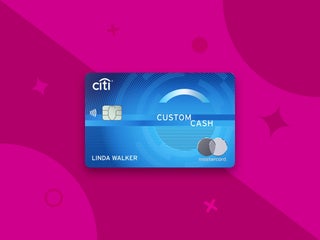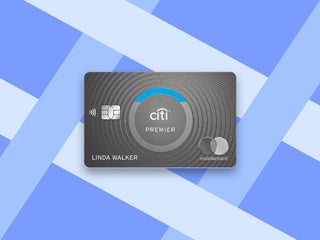Summary
Considering a balance transfer to a Citi credit card? Here’s everything you need to know, including card options, fees, restrictions and tips for improving your chances of approval.
The content on this page is accurate as of the posting date; however, some of our partner offers may have expired. Please review our list of best credit cards, or use our CardMatch™ tool to find cards matched to your needs.
Citi is a CreditCards.com advertising partner.
You’ve run up too much debt on your existing credit card with a high interest rate. You’re considering transferring that debt to a Citi credit card that offers a 0% interest rate on all balance transfers for a limited promotional period. Are you ready?
Here’s what you need to know, from the balance transfer cards Citi offers to fees, restrictions and your chances for approval.
The best Citi balance transfer cards
Citi has multiple options for consumers who want to transfer an existing balance.
- Balance transfer fee: Intro fee of $5 or 3% of the amount of each transfer, whichever is higher, for balance transfers completed within the first 4 months of account opening. After that, your fee will be 5% of each transfer (minimum $5)
- 0% introductory period: 18 months
- Note: Balance transfers must be completed within four months of account opening. This card doesn’t offer an introductory 0% APR on purchases.
- Regular APR: 15.49% to 25.49% variable
- Worth noting: You will earn 2% cash back on all purchases with this card – 1% when you make your purchase and 1% when you pay for your purchase.
- Balance transfer fee: $5 or 5% of the amount of each transfer, whichever is higher
- 0% introductory period: 21 months
- Regular APR: 16.24% to 26.24% variable
- Worth noting: Balance transfers must be completed within four months of account opening. The card also offers a 0% intro APR on purchases for 12 months (16.24% to 26.24% variable APR thereafter). The Citi Simplicity card charges no late fees or penalty interest rates.
- Balance transfer fee: Intro fee of $5 or 3% of the amount of each transfer, whichever is higher, for balance transfers completed within the first 4 months of account opening. After that, your fee will be 5% of each transfer (minimum $5).
- 0% introductory period: 15 months
- Regular APR: 14.99% to 24.99% variable
- Worth noting: Balance transfers must be completed within four months of account opening. This card also comes with a 0% introductory purchase rate for 15 months (14.99% to 24.99% variable APR thereafter). The Citi Rewards+ card charges no annual fee. It offers 2 ThankYou points per dollar spent at supermarkets and gas stations (up to $6,000 per year in purchases, then 1 point per dollar) and 1 ThankYou point per dollar on all other purchases. Every purchase is rounded up to the nearest 10 points ($2 soda earns 10 points, $13 movie ticket earns 20 points).
Citi® Diamond Preferred® Card:
- Balance transfer fee: $5 or 5% of each transfer, whichever is higher
- 0% introductory period: 21 months
- Regular APR: 15.24% to 25.24% variable
- Worth noting: Balance transfers must be completed within four months of account opening. This card’s 0% introductory period for new purchases is also 12 months (15.24% to 25.24% variable APR thereafter).
What you should know about Citi balance transfers before applying
There are limits to balance transfers with Citi credit cards, according to the company:
- Transfers aren’t immediate. According to Citi, it will take at least 14 days after you open your new Citi card for your balance transfer to close.
- You can transfer any amount, but there is a limit. Citi says your total balance transfer plus any transfer fees must be lower than your available credit limit.
- You can’t transfer your balance from an existing Citi card to another Citi card.
- Don’t stop making payments on your existing credit card until you are sure your balance transfer has closed and your debt is on your new Citi card.
- You need to request a balance transfer quickly. Citi requires you transfer any balances during the first four months of opening your new account.
How to improve your chances of approval for a balance transfer
Ash Exantus, head of financial education and financial empowerment coach in the New York City office of BankMobile, said that banks will look at both your credit score and debt-to-income ratio when determining whether you qualify for a balance transfer.
Exantus said your credit score is especially important. Your score might be high enough to qualify for a balance transfer. But if your score isn’t a strong one, you might take a hit when that 0% offer expires, he said.
“What will your interest rate be after your introductory offer is up?” Exantus asked. The higher your credit score, the lower your interest rate should be, but that’s not always the case.
It’s important to remember, too, how much you can transfer will depend on the credit limit on your new Citi card. Your credit score will help determine how high this limit is. And if your limit isn’t high enough, you might not be able to transfer all your debt to your new card.
“If you can only transfer part of your debt, a transfer generally isn’t worth it,” Exantus said. “If you are paying off debt on two cards, it can get complicated. If you are going to do a balance transfer, you want to be able to transfer the full balance from your existing card.” However, you can still experience some savings if you can only transfer part of your high-interest debt. You’ll just have to learn how to manage multiple card payments.
How to initiate a balance transfer on a Citi credit card
If you already own a Citi credit card:
- Log in to your account and choose the “transfer a balance” option from your account page.
- Start the process by providing key information about the card from which you want to transfer a balance.
If you are applying for a new Citi credit card:
- Start a credit card application for one of the balance transfer cards Citi offers.
- During your application, you will be given the option to transfer a balance from an existing card. Select this option to proceed.
- Provide basic information about your existing card and state how much you want to transfer. Remember, there’s no guarantee that you will be able to transfer the entire amount as Citi will need to evaluate your creditworthiness when establishing how much of a credit limit you will qualify for.
How to make a balance transfer work
A balance transfer won’t improve your financial situation if you don’t manage to pay off your debt before that 0% promotional offer expires.
The key, then, is to do whatever it takes to slash that transferred debt quickly.
Kevin Gallegos, vice president of Phoenix operations for Freedom Debt Relief, said consumers should always follow a household budget, something that is especially important after initiating a balance transfer.
“Live within your means or, better yet, below your means,” Gallegos said. “Know exactly what you have to spend each month and spend less. It means taking responsibility and choosing where your money goes.”
Jon Dulin, Philadelphia-based owner of financial site CompoundingPennies, said it’s all too easy to rack up credit card debt again. He did this after graduating from college, a pattern he continued until he discovered he was depressed.
Once he addressed that issue, he paid off his credit card debt, including the money he transferred, in two years. He recommends consumers who are constantly transferring balances search for the real reason for their spending issues.
“Buying stuff gave me a high, but that high wore off faster and faster,” Dulin said. “It’s important to take an assessment of your life. That’s not easy. It’s not fun. But it can help you change your spending habits.”
Editorial Disclaimer
The editorial content on this page is based solely on the objective assessment of our writers and is not driven by advertising dollars. It has not been provided or commissioned by the credit card issuers. However, we may receive compensation when you click on links to products from our partners.





